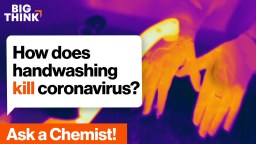medical research
A new study pushes back on psychiatry industry talking points.
The smart skin can “sweat” like human skin and also self-heal.
The takeaway: limit sugar and dairy if you want better skin.
In Chile, the so-called “release certificate” would free holders from all types of quarantine or restriction.
Innovative drugs are sometimes held up due to old-fashioned human biases.
Weight gain is a side effect of antidepressants, adding another layer of problems.
A team of scientists in Basel believes this will open up new lines of research.
In spite of a government mandate, females are often treated as afterthoughts in scientific research.
The politicalization of mask-wearing doesn’t help stop the spread of infections.
Smart bandages quickly identify antibiotic-resistant bacteria, and normal bacteria, in owies.
A specialized MRI sensor reveals the neurotransmitter’s influence on neural activity throughout the brain.
Clinical trials by Janssen Pharmaceuticals showed troubling results.
A groundbreaking Stanford University study explains the areas of the brain that are impacted by hypnosis.
Technique may enable speedy, on-demand design of softer, safer neural devices.
New research establishes an unexpected connection.
We must rethink the “chemical imbalance” theory of mental health.
A joint study by two England universities explores the link between sex and cognitive function with some surprising differences in male and female outcomes in old age.
Researchers at UT Southwestern noted a 47 percent increase in blood flow to regions associated with memory.
An MIT system uses wireless signals to measure in-home appliance usage to better understand health tendencies.
There are countless studies that prove ecotherapy (often referred to as nature therapy) is beneficial for your physical and mental health.
A study by UK archaeologists finds that longbows caused horrific injuries similar to modern gunshot wounds.
Using magnetic nanoparticles, scientists stimulate the adrenal gland in rodents to control release of hormones linked to stress.
R is a way of measuring an infectious disease’s capacity to spread.
The physical action of handwashing plus the properties of soap is a one-two punch for the virus.
▸
1 min
—
with
Brain-computer interfaces give scientists their closest look so far at what the human brain does while we’re asleep.
Researchers at the University of Copenhagen might have discovered a cure.
An antibody produced by llamas seems particularly effective at neutralizing a key protein of the novel coronavirus.
A new study finds evidence of an important neural speech pathway in macaques.
According to researchers at Washington State University, the answer is yes.
Men take longer to clear COVID-19 from their systems; a male-only coronavirus repository may be why.





























